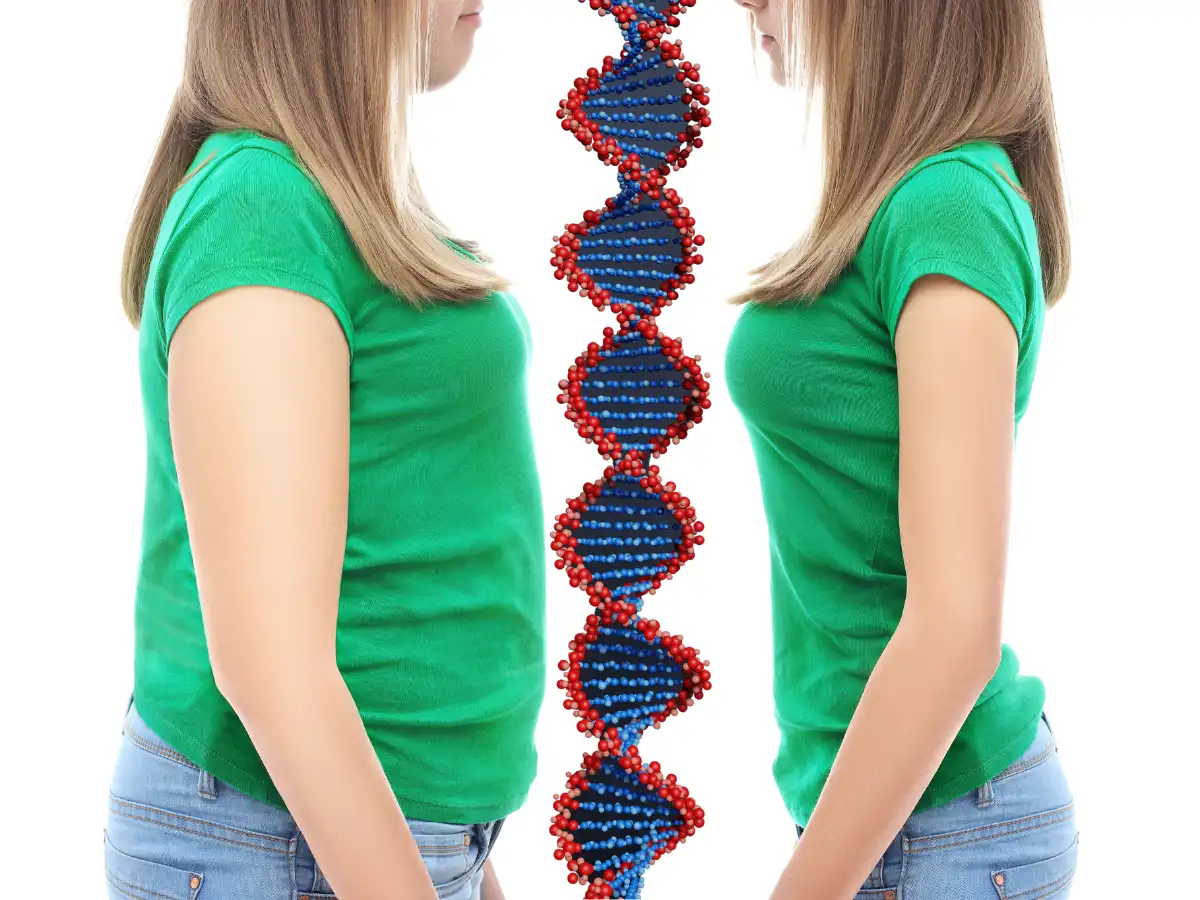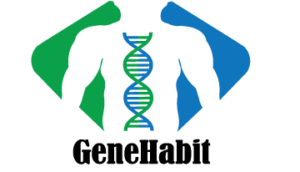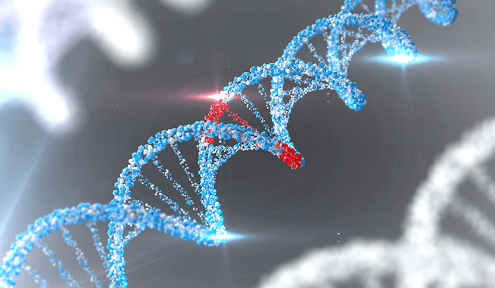Genetic Testing for Weight Loss: Is It Worth the Investment?
In recent times, health-conscious people have been looking for other options for losing weight. From fashionable diets to rigorous exercises, shedding the extra pounds seems to be a long-lasting battle. But what if the solution to your weight loss lies in your DNA?
Genetic testing is becoming increasingly popular, moving from research laboratories to everyday practice in wellness. So, should you pay for weight loss genetic testing? Let’s have a look at the reality around what genetic testing is, how it is related to weight loss, and whether or not it can actually help you reach your health goals.

What Is Genetic Testing?
Genetic testing is perhaps one of the most interesting new areas of research in healthcare. It basically involves examining your DNA to unlock how and to what extent your genes affect you in various aspects of your life. Every person has unique DNA containing information on hundreds of thousands of features, ranging from purely physical features like eye color to health-related factors like dietary needs and fitness capabilities.
Such tests employ your DNA—usually obtained through a sample of blood or saliva- to identify genetic predispositions. The information you derive from such tests can then form the basis of a wellness program tailored to your specific genetic makeup.

What Is the Role of Genes in Weight Loss?
Your genes can play a significant role in determining how easily you gain or lose weight. They influence how the body processes nutrients and controls hunger, metabolism, and fat storage. Here are some of the most influential genetic factors:
- Fat Storage and Burning: A few genes determine whether you burn up fats efficiently or tend to store excess ones. If you store fat easily, an approach to weight loss could be to burn more calories instead.
- Metabolism: The speed of your food metabolism is partly under genetic control. The slower this metabolism, the more discipline and consistency you need to have to carry out a weight loss plan.
- Appetite: Your genetic predisposition can affect hunger, how fast you feel full, and, therefore, your calorie intake and weight gain.
Benefits of Genetic Testing
1. Personalized Counseling
The largest advantage of genetic testing is getting specific counseling based on your genetic makeup. Instead of following normal diets and exercises, insights specific to your genetic makeup will be provided with its help.
- Food recommendations: Depending on your test results, you should adopt a high-protein diet, reduce your intake of carbohydrates, or ensure that you eat a balanced diet. If your body cannot metabolize fats, you may be recommended for a low-fat diet.
- Workout Recommendations: Your genotypic profile might also help you determine what kind of exercise you should do. If it turns out that you are showing a genetic predisposition towards endurance training, you should spend more time training like running or cycling. Alternatively, some people reveal interesting results when they start training on strength, so basically, it depends on your genetic makeup.
2. Faster yet Sustainable Results
Targeting your weight loss through genetic testing will ensure that you are not going against your body’s natural tendencies. When a diet and workout align with your genetics, you’ll be getting healthier results much faster. Alignment with genetic testing results allows you to bypass the frustration caused by trial and error.
3. Health Risk Insights
Having genetic tests isn’t just for physical characteristics; it also gives indications of possible health risks. For instance, it will tell you whether you’re at risk of diseases like diabetes or heart disease that are linked with obesity. You could then apply some preventive measures and continue reducing the risks.
4. Motivation Level
Having a clear, evidence-based plan makes the weight loss process more motivating. When your strategy is built around your unique genetic profile, it feels more achievable and exciting. Knowing that your efforts are aligned with your body’s needs reduces frustration and helps you stay committed.

Costs of Genetic Testing for Weight Loss
1. Understanding the Costs:
Cost-weight loss Testing can range from $100 to $400 or more, depending on how detailed a test is. Expensive as this may seem, it’s an investment in long-term health, and the knowledge obtained from these tests can act like a form of health insurance, saving you the necessity of the costlier treatments that you might need to look for in the future.
2. Other Costs:
In some cases, follow-up consultations with the service providers, such as dietitians or nutritionists, will be necessary to interpret the results and apply them appropriately. Such services could cost high if the clinic offers other wellness programs as well.
Before Genetic Testing, Consider the Following
1. What Exactly Is the Purpose?
Establish your objectives—be it weight loss, a dietary plan, or knowing your susceptibility to diseases. Knowing what you want helps you evaluate whether gene testing is helpful.
2. Helps Your Doctor to Better Understand Your Health
Healthcare professionals can use genetic testing results to formulate specific wellness plans for you. If you aim to perfect your wellness, genetic understanding can be a valuable tool for practitioners in devising expert-led solutions for you.
3. Use Genetic Testing as Just One Part of Your Strategy
While genetic testing offers helpful insights, it’s not a magic solution. Proper nutrition and exercise with healthy habits could be the keys to optimal weight loss management. Think of genetic testing as a guide—not the answer—to your health journey.

Conclusion
Genetic weight management offers a personalized approach to weight loss, helping you achieve your goals much more efficiently. Understanding how your body works will enable you to design the appropriate diet and workout. We all know weight loss genetic testing is not a miracle cure, and it comes at a cost, but it surely provides one with information and motivation. Instead of taking your whole stake in it, it should be considered as a part of a larger wellness approach, along with genetic testing.
Over 500 personalized insights from our GeneFit DNA Test unlock the best for your health. Take control of your well-being through tailored suggestions on diet, exercise, and many other aspects of well-being. Get started with GeneHabit today!



 Zinc is a nutrient that is essential for human health. It has a variety of roles in the body, including helping to form DNA and proteins and aiding in cell division. Zinc is also important for hair health. A zinc deficiency can lead to hair loss and other disorders. Luckily, zinc can be found in a variety of foods, so it is relatively easy to ensure you are getting enough of this nutrient. Additionally, genes may play a role in how well you absorb zinc from food. A DNA test can help to identify any genetic variants that may affect zinc absorption and
Zinc is a nutrient that is essential for human health. It has a variety of roles in the body, including helping to form DNA and proteins and aiding in cell division. Zinc is also important for hair health. A zinc deficiency can lead to hair loss and other disorders. Luckily, zinc can be found in a variety of foods, so it is relatively easy to ensure you are getting enough of this nutrient. Additionally, genes may play a role in how well you absorb zinc from food. A DNA test can help to identify any genetic variants that may affect zinc absorption and 






 Selenium is a nutrient that’s needed for many important processes in the body, including metabolism and thyroid function. It can only be obtained through diet so it doesn’t have any negative health effects when taken at proper doses. Selenium is an important mineral that functions in the body to help protect against damage from free radicals and infections. Selenoproteins function as enzymes; proteins that are involved with DNA repair as well reproduction. Selenium is an important mineral for hair growth, and people have known this for years. It’s just that its role in the process was underestimated until recent studies came out confirming what we already knew: selenium helps with both the strength as well as thickness of your locks!
Selenium is a nutrient that’s needed for many important processes in the body, including metabolism and thyroid function. It can only be obtained through diet so it doesn’t have any negative health effects when taken at proper doses. Selenium is an important mineral that functions in the body to help protect against damage from free radicals and infections. Selenoproteins function as enzymes; proteins that are involved with DNA repair as well reproduction. Selenium is an important mineral for hair growth, and people have known this for years. It’s just that its role in the process was underestimated until recent studies came out confirming what we already knew: selenium helps with both the strength as well as thickness of your locks!






 Iron is an essential mineral for human health, playing a role in many different bodily functions. One of the most well-known roles of iron is its importance in the formation of red blood cells. However, iron also plays a critical role in hair health. Iron is essential for life. It’s used in many processes including oxygen transport and production of hormones, but most importantly it helps your body grow! Iron is a vital mineral for the health and beauty of your hair, but it often gets neglected. If you’re losing hairs then get checked to see if there’s an issue with iron levels in that area!
Iron is an essential mineral for human health, playing a role in many different bodily functions. One of the most well-known roles of iron is its importance in the formation of red blood cells. However, iron also plays a critical role in hair health. Iron is essential for life. It’s used in many processes including oxygen transport and production of hormones, but most importantly it helps your body grow! Iron is a vital mineral for the health and beauty of your hair, but it often gets neglected. If you’re losing hairs then get checked to see if there’s an issue with iron levels in that area!
































